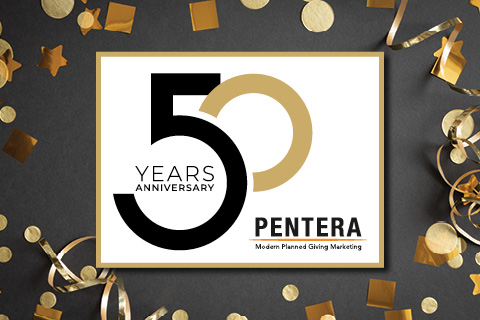
The Pentera Blog
Do You Know the Most Important Word in Your Planned Giving Marketing?
What's the most important word in planned giving marketing? Well, your marketing is going to donors and prospective donors, so maybe the most important word is "donor." Or maybe the most important words are the name of your organization—keep your charity in front of the donors as much as possible. Or maybe the most important word now is "impact": studies show that more donors than ever are looking at an organization's impact before giving or continuing to give.
The answer to those three suggestions is: no, no, and no. The most important word in your planned giving marketing is "you." As Pentera President & CEO Claudine Donikian says, " ‘You' is your secret weapon." Your marketing needs to speak directly to your planned giving donors and prospects—not just describing some charitable planning strategy that donors in general can use. It hopefully is a strategy that this particular donor might at least consider, and you help them consider it by addressing them directly.
So rather than stating, "Donors can possibly save taxes by structuring their planned gift in XYZ manner," you could word it, "You can possibly save taxes ..."
Even when discussing your organization's impact, you can work "you" into the text. Instead of "Our organization accomplished XYZ in the past year," you can write, "With the help of gifts from donors like you, our organization accomplished XYZ ..."
It's good to be especially vigilant about using "you" in headlines: "5 Ways to Save Taxes When Giving" is not as effective as "5 Ways You Can Save Taxes When Giving."
You can even work "you" into a donor story about a particular person. When interviewing donors for clients, Pentera asks the donor, "What might you say to others to encourage them to make a gift?" The answer is often a direct appeal to others involved with the organization, such as "If you got a great education at our school, you should consider giving back."
So get that secret weapon—the word "you"—in constant use to help engage your donors and donor prospects.


